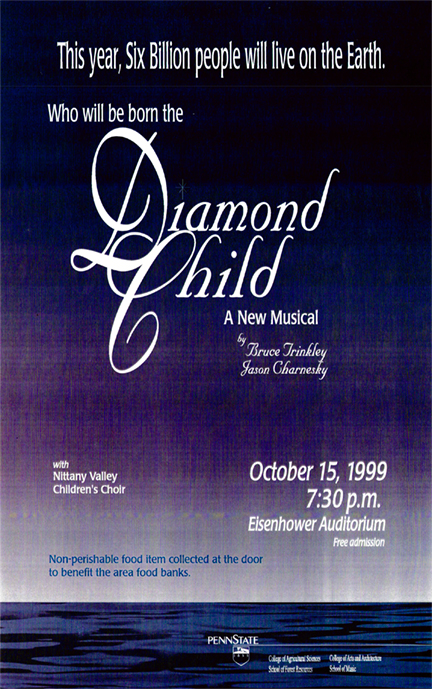
H A Bagel Is More Humorous song for SATB Chorus of Bagel Lovers and Piano. Lyrics by Richard Marcus from the Metropolitan Diary of The New York Times, March 21, 1991. Also available for TTBB and solo voice.
Download the poem and score and laugh! Listen to midi.
A bagel is more than a Jewish doughnut.
More than a roll with a hole.
More than a strange English muffin.
A bagel's got bagelly soul. . . .
So the next time you feel
That your life is the pits,
And you're trapped in the grind and the crunch.
Stagger right in to the closest warm bagelry,
And take a nice bagel to lunch

H Advice to a Unicorn for SATB Chorus and Piano. Text by Ejner Jensen (1937-2020).
The poem, Advice to a Unicorn, appears on a plaque next to a statue of a unicorn in the garden of the Michigan League on the campus of the University of Michigan. Professor Jensen had been asked to speak at the dedication of the statue on October 6, 1993 - which led to the composition of the poem. The setting is dedicated to the memory of my dear friend, mentor and patron, Suzanne “Suzi” Hess (1929-2008). Suzi was a beloved public school teacher who is venerated by several generations of her students. She was also a great supporter of the choral art in State College and a devoted alumna of her alma mater, Penn State.
View poem and score. Listen to midi.
Since you were born with just one horn
What should you do? Wish you had two?
Feel low and blue? Lament and rue
Your blighted birth on this hard earth? . . . .
And you will gain a lasting reign
In every art you’ll have a part
Your horn a dart to pierce the heart,
Each virgin sigh to see you die.
And then at last your myth will harden
Become a statue in the garden.
American Legacy (I Leave You from The Wagon Train Show 1976) Patriotic Anthem for SATB Chorus and Piano. Lyrics by Roger Cornish (1934-2000). (4 min.)
Inspiring words and noble melody that the cast imparted to the millions who attended the Bicentennial Wagon Train Show in 1976 across America. American Legacy celebrates the rich legacy of the American experience. It is appropriate for patriotic celebrations, general concert use, and religious services. More relevant today than ever.
Download the score. Listen to midi.
Dear Mother Earth Finale from The Diamond Child. Lyrics by Jason Charnesky.
Adult SATB Chorus, Children's Two-part Chorus and Audience (optional) with Keyboard.
Also available for SA chorus and TB chorus.
Another Trinkley-Charnesky anthem that inspires young people to change the world.
Link to video: start at 1:12. Download score.
By the dreams that we decide billions will abide
in the world we try to build.
O dear Mother Earth, O dear Mother Earth,
how spacious your girth that shelters
the children that dance into birth!
O parents so true, be sure that you choose
the future that is best for your children to use.
We learn and we play. And wait for the day
that we too are grown ups and help to choose the way.
Our future is shared, six billion to spare.
Our world is decided by what we do here.
The future is now. You must teach us how
the family of man can be true to this vow:
Love to learn. Learn to share.
Share to live and live to care.
Elegy for SATB voices and piano. Text by Jason Charnesky
Elegy is adapted from Act One: Scene Three of YORK: The Voice of Freedom, an opera based on the Lewis and Clark Expedition of 1804-1806. York is tending the dying Sergeant Floyd and his solo lament grows into a powerful chorus sung by the entire cast.
View score. Listen to midi.
Willow, willow, soft and green,
lovely as a waking dream,
gentle willow, sweetly rise
and shade our weary, weeping eyes.
Lily, lily, meek and white,
sweet as daybreak and more bright,
Come blanket us here where we rest
and let us dream of heaven rest. . . .
Lilac, blossom bold as day,
lively as the month of May.
sweetly scented summer tree,
incense of our memory.
Let our sorrow slowly mend,
Allow us to go on again.
Willow, lily, lilac, bloom
love's bouquet now seals love's tomb.
I am not sure how I came to discover the wonderfully idiosyncratic texts of 19th Century humorist and man of letters Eugene Field. But one summer at Dorland I got on a Field jag and set three poems: one of his most charming texts for young folks, one of his most humorous and frivolous, and one of his most bizarre. They are grouped together because they all have the same author, but you should consider performing them separately. Your audience may get tired of laughing – or at least smiling.
Three Field Songs SATB chorus and piano. Humorous texts by Eugene Field (1850-1895) 2000 (5 min.)
From Sharps and Flats published in 1890. Field was a newspaper writer, but best known for his children's poetry and humorous essays. His columns would sometimes feature his light verse for children, and he became known as the “Poet of Childhood.”
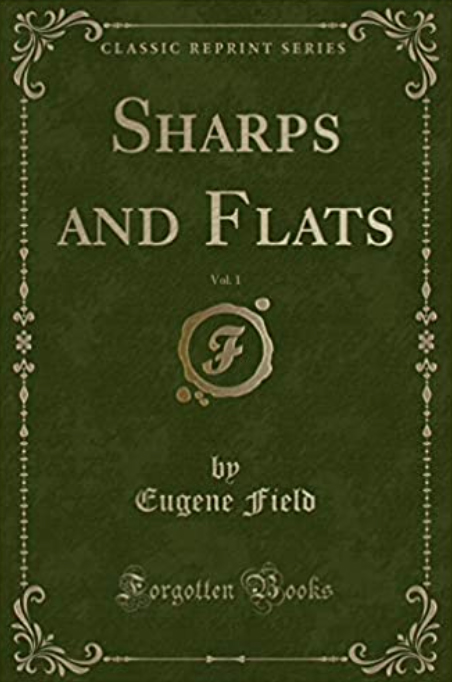
View the text and score. Listen to midi.
2. The Remorseful Cakes Cautionary poem by Eugene Field. Unison chorus and piano.
A humorous ballad about a young man who ate too many buckwheat cakes before bedtime and the strange dreams that came from his indulgence. Can be sung by young voices or by grown-ups to warn youngsters about over-indulging.
View the text and score. Listen to midi.
3. An Overworked Word Most peculiar doggerel poem by Eugene Field. SATB chorus and piano.
View the text and score. Listen to midi.
We rake up, we fake up,
And use the word "up" when we can. . . .
But hanged if we let up
On “up,” the much overworked word.
Harvest Due from the Pennsylvania Bicentennial Wagon Train Show (1976) SATB chorus with piano. The companion anthem to American Legacy from the big national birthday bash of a show. Also available for TTBB.
Download the score. Listen to the Penn State Glee Club with Douglas Smith on the solo.
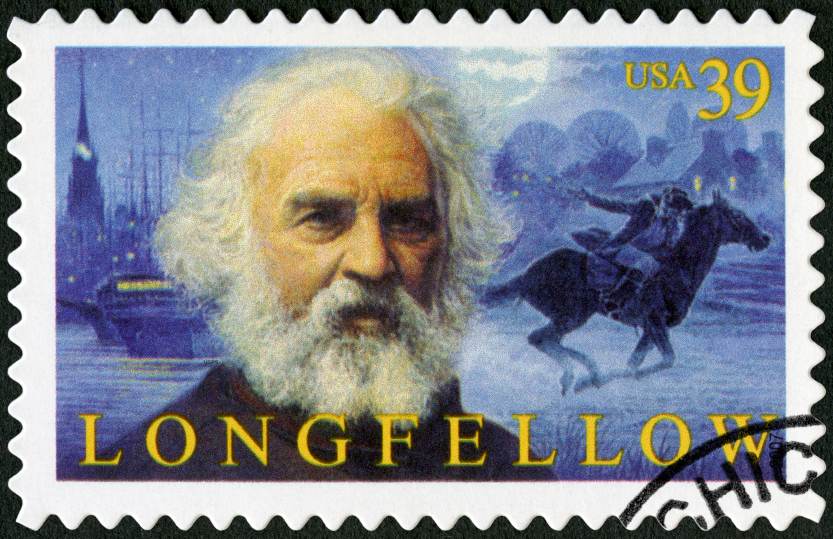
Haunted Houses For SATB chorus and piano. Contact composer for alternate versions.
Ghost song with text by Henry Wadsworth Longfellow (1807-1882). Ideal for Halloween programs.
Read entire poem. View score. Listen to midi.
All houses wherein men have lived and died
Are haunted houses. Through the open doors
The harmless phantoms on their errands glide,
With feet that make no sound upon the floors.
We meet them at the door-way, on the stair,
Along the passages they come and go,
Impalpable impressions on the air,
A sense of something moving to and fro. . . .
Folksongs of Latin America for SATB Chorus and Piano.
View score. Listen to midi.
View score. Listen to midi.
2. ¿Donde vas, Alfonso Doce? comes from Spain and refers to Alfonso XII (1857-1885), the popular ruler of Spain from 1874 to 1885.
View score. Listen to midi.
3. A cantar a una niña is also popular throughout Latin America. Here it is arranged as a lullaby.
View score. Listen to midi.
4. ¡Ay, Zamba!, one of the best-known Latin American folksongs, comes from Argentina. Its buoyant rhythm, alternating between meters with much syncopation, contributes to its popularity.
I Won’t Sing You a Love Song SATB chorus and piano. Text by Jason Charnesky.
Jason’s lyrics inspired some lovely melodic interplay between the voices.
View the score. Listen to midi.
Idyll for SATB Voices and Piano or Chamber Ensemble (String Quartet, Piano Trio, and Woodwind Quintet) Poem by Theodore Roethke (1908-1963) from Open House (1941). Idyll is adapted from the song cycle Summer Evenings for 5 solo voices and chamber ensemble in Mountain Laurels: A Choral Symphony, written to celebrate the Centenary of State College, Pennsylvania.
Roethke’s lyrical evocation of life in small-town America ends with a jolt, reminding us that violence exists and threatens this idyllic existence.
View score. Listen to midi. Listen to original version for 5 solo voices and chamber ensemble.
Now as from maple to elm the flittermice skitter and twirl, A drunk man stumbles by, absorbed in self-talk.
The lights in the kitchens go out; moth wings unfurl;
The last tricycle runs crazily to the end of the walk.
As darkness creeps up on the well-groomed suburban town,
We grow indifferent to dog howls, to the nestling's last peep;
Dew deepens on the fresh-cut lawn;
We sit in the porch swing, content and half asleep.
The world recedes in the black revolving shadow;
A far-off train blows its echoing whistle once;
We go to our beds in a house at the edge of a meadow,
Unmindful of terror and headlines, of speeches and guns.
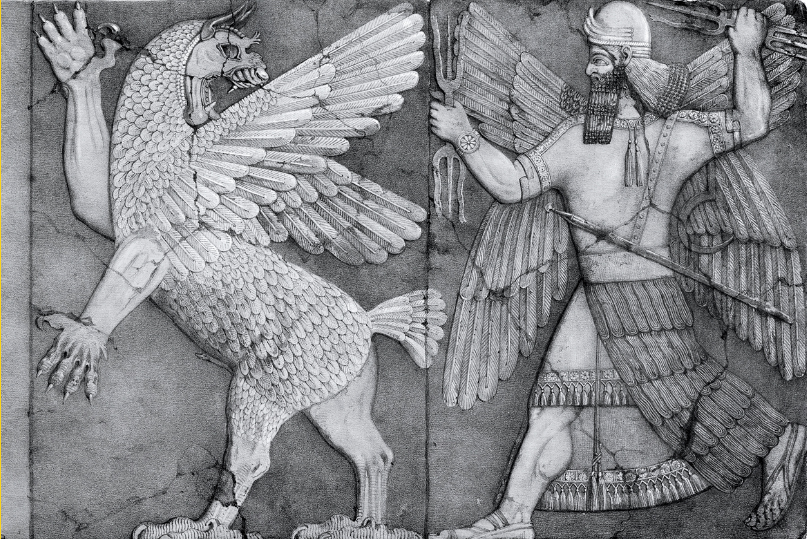
The Lament of Gilgamesh SATB chorus and piano. Text by Jason Charnesky. (5:30)
For almost three thousand years, the epic Gilgamesh was celebrated throughout the Middle East. As the story begins, Gilgamesh is an arrogant king whom the gods decide to punish. They create a wild man, Enkidu, who is almost more animal than human and who lives in the fields with the lions and gazelles. The civilized king Gilgamesh and the wild man Enkidu meet and fight, and by the end of their fight they become best friends for each recognizes in the other his own equal and double. Tragically Enkidu, in the prime of his youth, grows ill and dies. For the first time in his life, King Gilgamesh is confronted with the reality of death, and he sings this lament over the body of his friend. Very powerful, dramatic and dissonant writing.
This English text is a free translation of the Akkadian cuneiform version of the epic (written between 1300 and 1000 BCE).
Download score. Listen to midi.
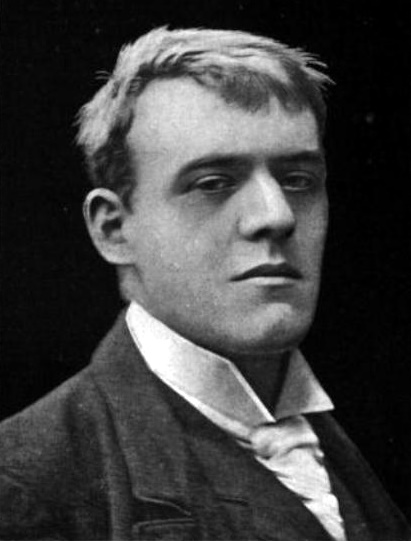
The Moon’s Funeral Poem by Hilaire Belloc (1870-1953) SATB chorus and piano. 2002
The Poetry Foundation considers Belloc “one of the most controversial and accomplished men of letters of early 20th-century England . . . and praise his humor and poetic skill, hailing Belloc as the greatest English writer of light verse since Lewis Carroll and Edward Lear.” The Moon’s Funeral is one of his most haunting paeans to the moon goddess.
View the score. Listen to the midi.
The Moon is dead. I saw her die.
She in a drifting cloud was drest,
She lay along the uncertain west,
A dream to see.
And very low she spake to me:
“I go where none may understand,
I fade into the nameless land,
And there must lie perpetually.”
And therefore I,
And therefore loudly, loudly I
And high
And very piteously make cry:
“The Moon is dead. I saw her die.”
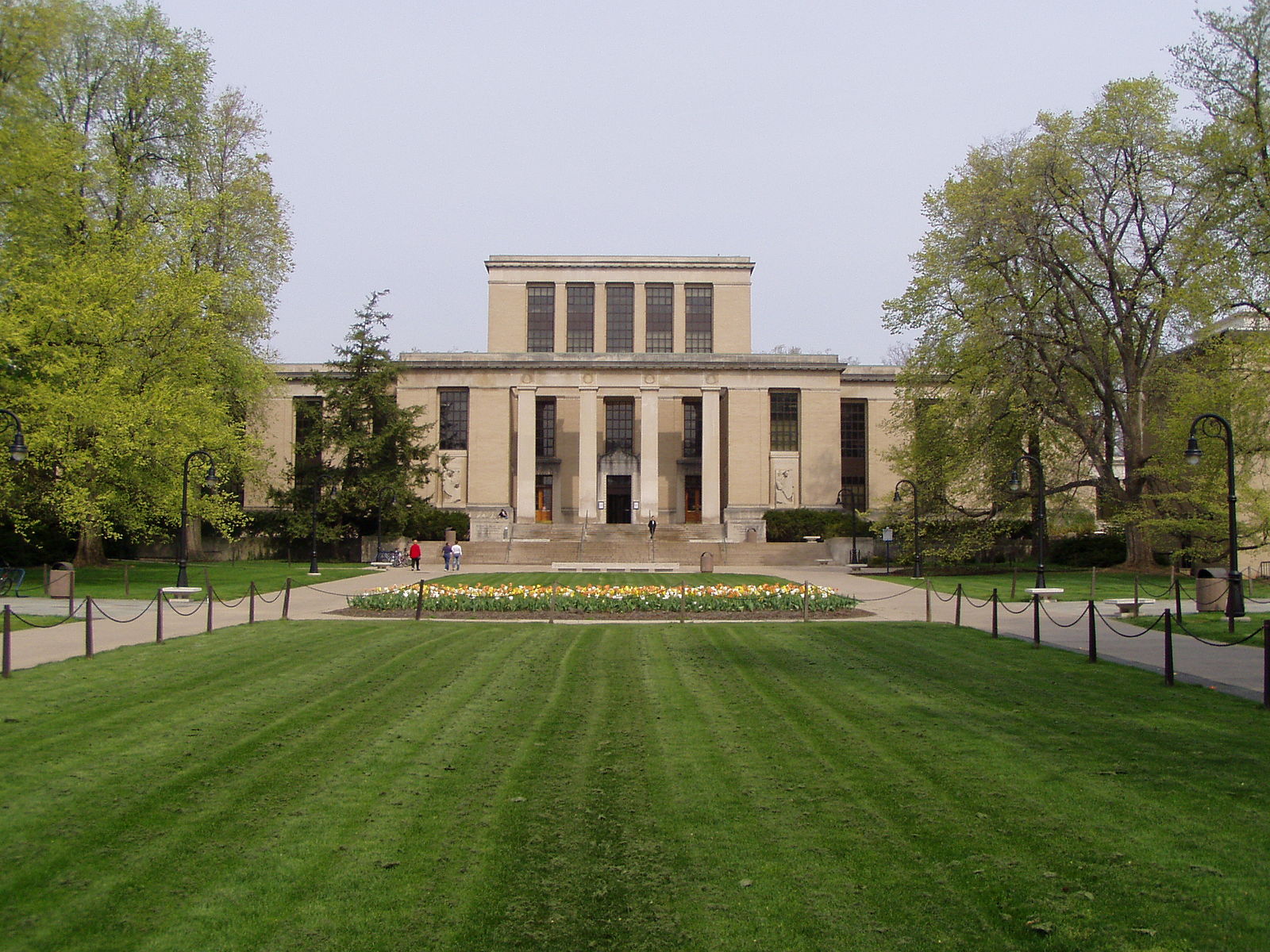
The Spirit of Poetry Poem by Fred Lewis Pattee (1863-1950) from The Message of the West (1903)
For SATB chorus and piano or harp. Also for SSA chorus, and for solo voice. (3 min.)
Pattee was the first professor of American Literature in academe; the main library at Penn State is named for him. The Message of the West is the first section of an Ode written and delivered by Pattee at the Dedication of Schwab Auditorium on June 16th, 1903. This poem opened Mountain Laurels: A Choral Symphony in a setting for voice and harp. Here the lovely inspiring text is set for SATB voices and piano, but of course harp would be even more appropriate in a salute to the muse of poetry.
View poem and score. Listen to midi. Listen to The Message of the West with Holly Anderson, soprano; Kimberly Burkhard, mezzo-soprano; and Elizabeth Asmus, harp, perform the solo voice and harp version at the opening of Mountain Laurels.
A poem is a glimpse, a faltering ray
From out that larger day;
A single glimpse through mist, and night, and cloud,
To some rare soul allowed . . . .
It stands forever, lone, sublime, apart,
A thing to thrill, a thing to lift the heart,
A truth, a bit of God, – immortal art.
To Music, to becalm his Fever Poem by Robert Herrick (1591-1674) SATB chorus and piano.
Commission and Premiere: The Chesapeake Chorale, Jesse Parker, Conductor.
Dedicated to the memory of Karen Gilbert Landis (1945-2015), Founder Director of the Chesapeake Chorale.
One of Herrick’s loveliest poems makes for a fitting tribute.
Download score. Listen to midi. Listen to Chesapeake Chorale.

True Love at Last For SATB Chorus (preferably self-absorbed) and Piano.
Poem by D. H. Lawrence (1885-1930)
Lawrence is best-known for his dramatic stories of love and sex in his novels. But he could also take a humorous and caustic stance on relationships, as the excerpt from this poem demonstrates.
Download poem and score. Listen to midi.
The handsome and self-absorbed young man
looked at the lovely and self-absorbed girl
and thrilled. . . .
So they simply adored one another
and in the end
they were both nervous wrecks, because
in self-absorption and self-interest they were equally matched.
The Wheel Poem by Wendell Berry For SATB chorus and piano with optional violin and bass.
Dedicated to the memory of Douglas N. Cook (1929-2014), Head of the Penn State School of Theatre.
Wendell Berry (b. 1923), author of poetry, fiction, and essays, writes from and about his farm in rural Kentucky. He has been concerned with global challenges to the environment and is a staunch advocate of the value of community. The Wheel expresses his view of the cycle of life – with a violin at a country dance.
Sorrow is gone from them.
They are light. They step
into the steps of the living
and turn with them in the dance
in the sweet enclosure
of the song, and timeless
is the wheel that brings it round.
White Fields For SATB Voices and Piano. Also available for TBB and Unison Treble Voices.
Poem by James Stephens (1880-1950).
View poem and score. Listen to midi.
The enigmatic poem, set to a haunting melody, leaves a question: is it being sung by the parents or by the children? James Stephens was an Irish poet, novelist and political activist, and an ardent Irish Republican who wrote and spoke Gaelic. To musicians, Stephens is today best-known as the author of the texts to Samuel Barber's Reincarnations. White Fields first appeared in Poetry Review in June 1912.
And our mothers always know,
By our footprints in the snow
Where it is the children go.
The Winter Tree Sermon SATB or TTBB chorus and piano. Also available with marimba or celesta.
Text by Jason Charnesky. (4 min.)
Premiere: Penn State Glee Club. Winterfest 2003.
This significant choral setting is joyous, rhythmic and moves freely through tonalities to celebrate life and love. The first and last of Jason’s elegant 7 verses give evidence to the poetic richness of the text:
The winter wind blows cold and gives the trees a voice
and though the year be old the branches sing “Rejoice!”
“Despite the term decreed to earth in ice and mud,
we harbor still the seed of spring and guard the bud . . . .
But what these branches spoke reminded me of what
I almost had forgot: I love. I live. I love.
All that we thought was lost does not forsake us, but returns.
Beneath the frozen plot a fiery pasture burns.
